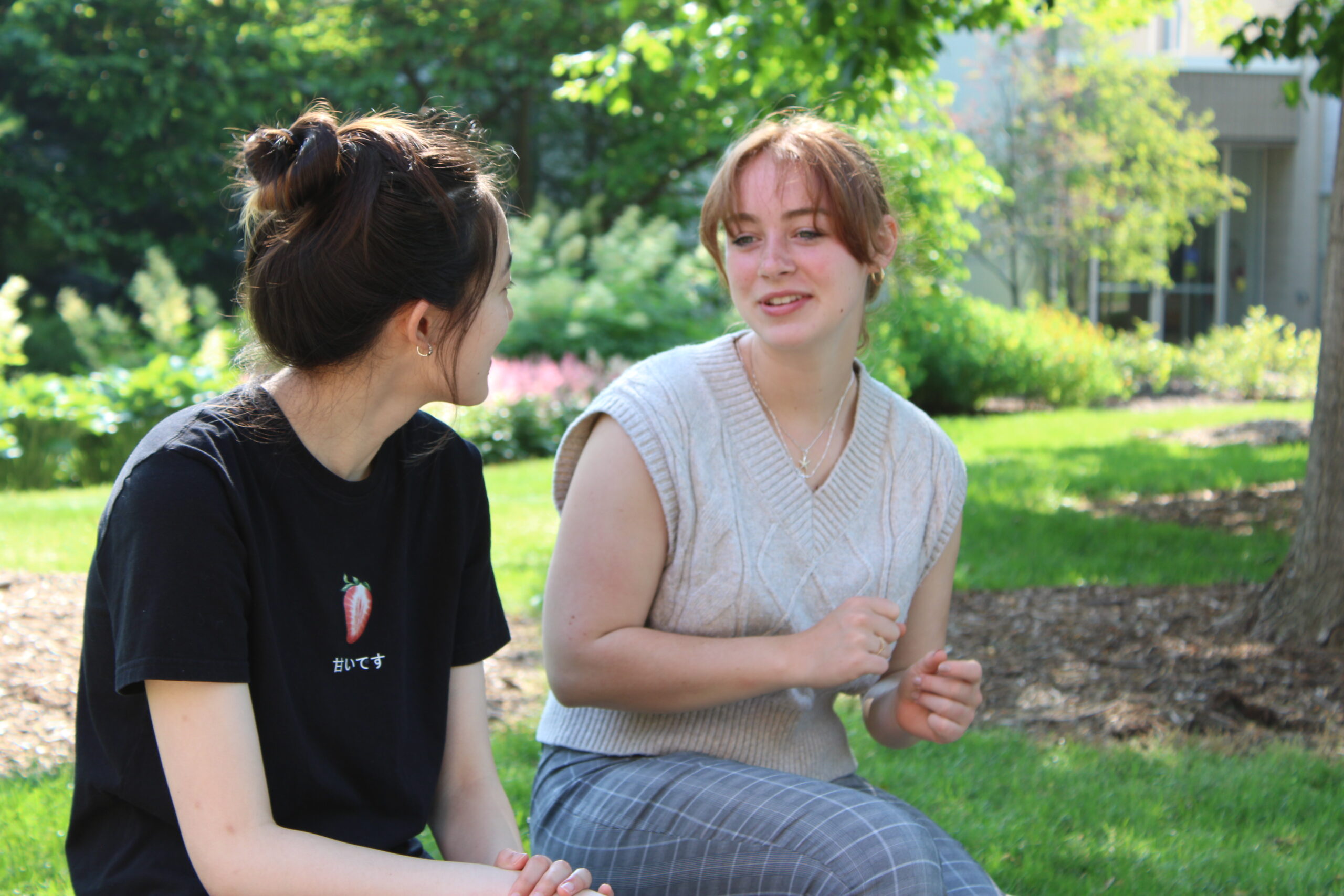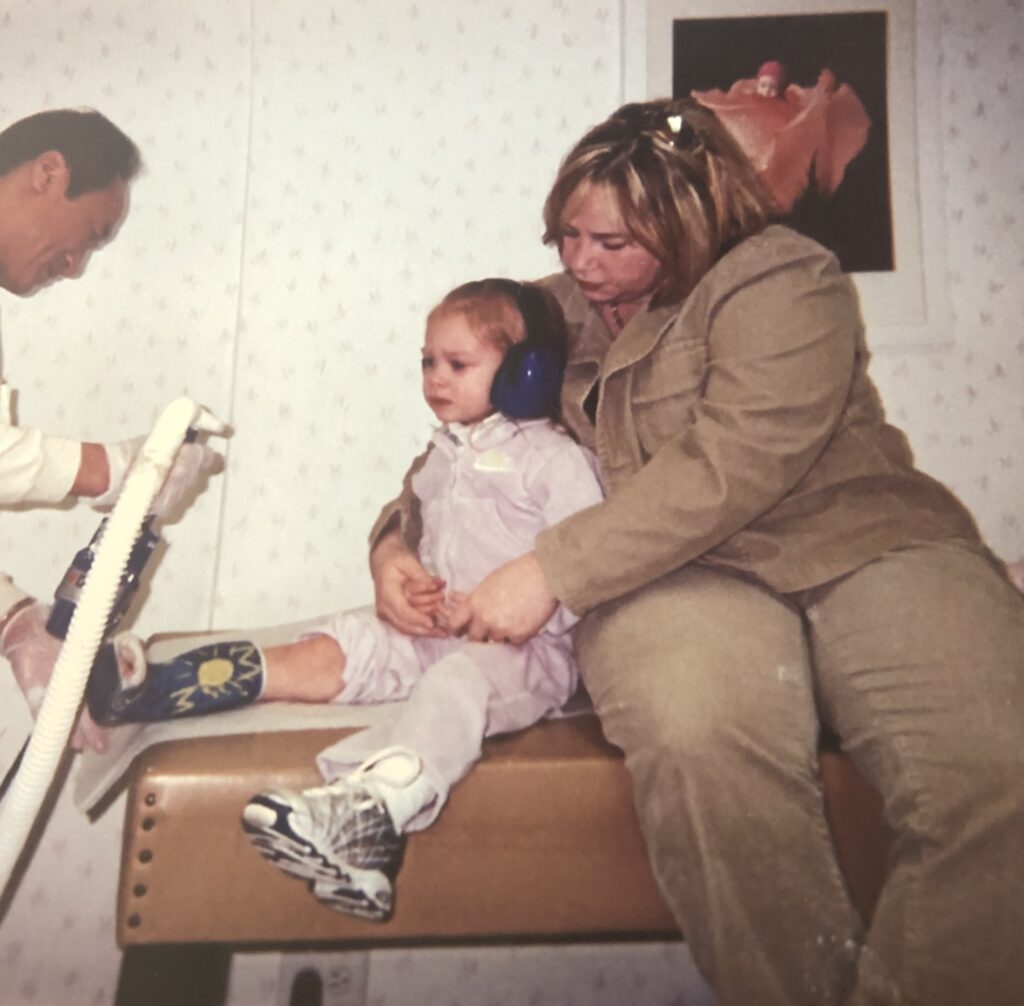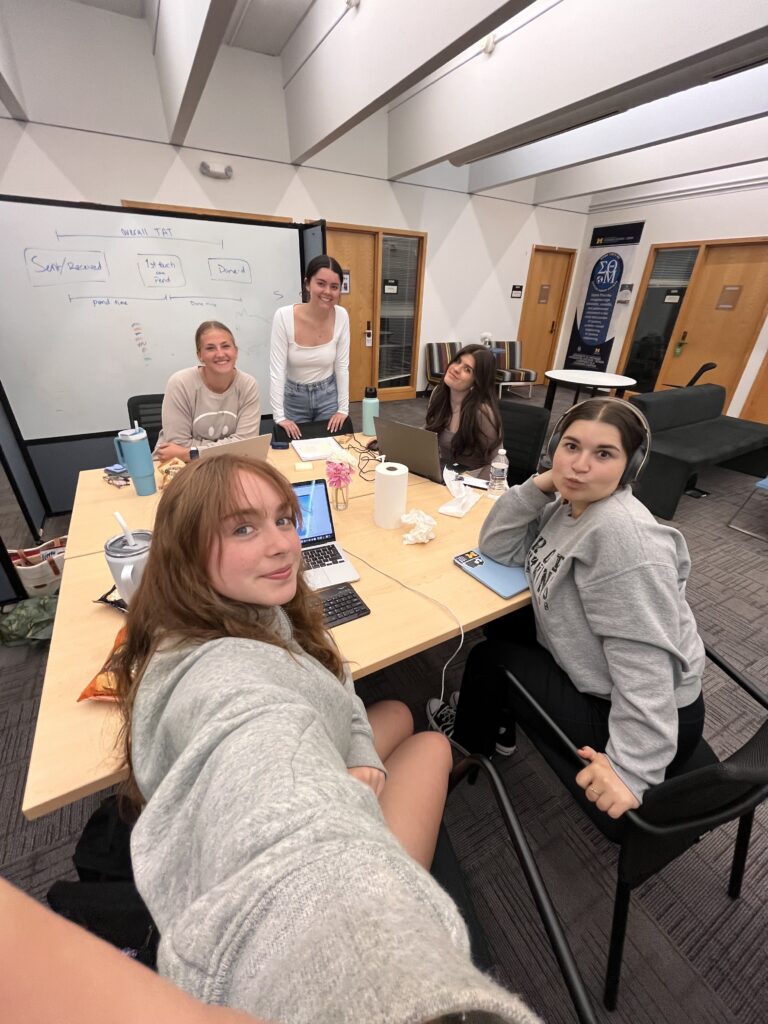Hannah Eller, a Biomedical Engineering student at U-M, shares her experiences working to improve healthcare quality as a CHEPS researcher.

When I was a junior in high school, my grandmother was hospitalized for a transient ischemic attack, more commonly known as a mini-stroke. As someone without a big family history of strokes, her care team was concerned over the rhythms in her heart. Because of this, she had a surgically implanted device called a loop recorder that would measure her heart rhythms and report them to a small device that would sit next to her bed. I had never seen or heard of anything like this little device. Sure, I knew what pacemakers were and what they did. But how did they work? Who made these things? Who came up with these ideas? All these questions swirled in my head as a 17-year-old sitting in the hospital room with my mom, grandmother, and the spokesperson who was explaining the device to us. As soon as the spokesperson finished answering any questions, it was my turn to grill her…the poor woman.
“How does that thing work? What is it made of? What do you do for work?” I asked.
As soon as the words “biomedical engineer” left her mouth, I decided what I wanted to do for the rest of my life.

I continued to explore the field of biomedical engineering, realizing just how impactful I could be on both my life and the lives of others. I was born with clubfoot, where my foot was smaller and turned in on itself, and my Achilles tendon was shorter. I spent the better part of my childhood in braces and casts and was a frequent visitor of Shriner’s Children’s Hospital in Chicago. Despite this, I was a very active kid, much to the dismay of my parents. (For example, I once cartwheeled all the way from my house to my neighbors across the street in a knee-high cast just to prove it didn’t bother me.) While I put up with the doctor’s visits, casts, and surgeries, it was hard for me to not feel jealous of other kids who didn’t have to go through what I was going through.
However, as I got older, the casts came off and the doctor’s visits became less frequent, I realized just how lucky I was to have a relatively easy care plan and readily accessible treatment available to me. As I learned more about the biomedical industry and the various avenues it has, I quickly realized how much I could help people like me-children who have clubfoot and other birth defects that don’t have as clear of a treatment plan.
In pursuing my degree at the University of Michigan, I have continuously learned about emerging techniques in healthcare, whether they involve prosthetics, cell engineering, or electrical devices within the body, and I have been fascinated by the various improvements that are being made each day. I am inspired by the ways that biomedical engineers continue to make these advancements and improve the quality of healthcare that people receive and the ways that they receive it.

I was introduced to the Center for Healthcare Engineering & Patient Safety (CHEPS) through an acquaintance who worked there. When I researched more about what CHEPS does, I was instantly hooked. A workplace all about improving the quality of healthcare, using an engineering mindset to tackle problems and find solutions? Count me in.
This summer so far at CHEPS has been extremely rewarding both personally and in my work. I have nourished strong relationships with the staff and students and have been able to form a connection between improving healthcare quality and advancing my engineering knowledge as well. Working at CHEPS has allowed me to continue along a healthcare quality path that relates to my pursuit of an engineering degree, as well as learn new skills I may not have received in the classroom or at other internships. Additionally, CHEPS has allowed me to focus on both improving care for the individual, a goal that I had for myself as a biomedical engineer, but also has allowed me to see the bigger picture of improving healthcare quality.
— Written by Hannah Eller, CHEPS Student
